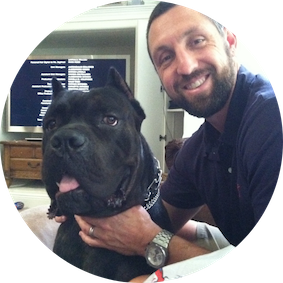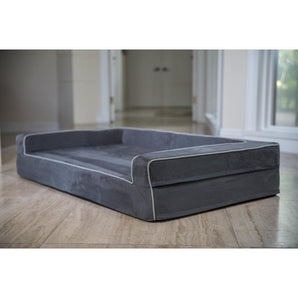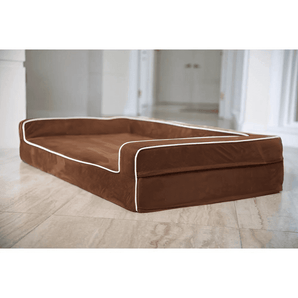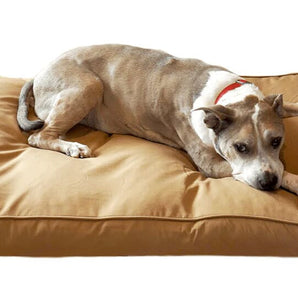If you’re a large breed dog owner or possibly thinking about one day owning a large breed dog such as a mastiff, great dane or other big dog, you need to be aware that these gentle giants have special needs and health issues that other smaller breeds don’t.
First off, even though the larger breeds are typically very well built, they can actually be fragile, especially early in life due to their extremely fast rates of growth. This fragility is caused by the massive weight many of these dogs carry, which puts additional strain on their skeletal system, muscles, joints and ligaments. Proper feeding portions and nutrition, the right food, low impact exercise and good bedding are key to the health and longevity of these big guys.
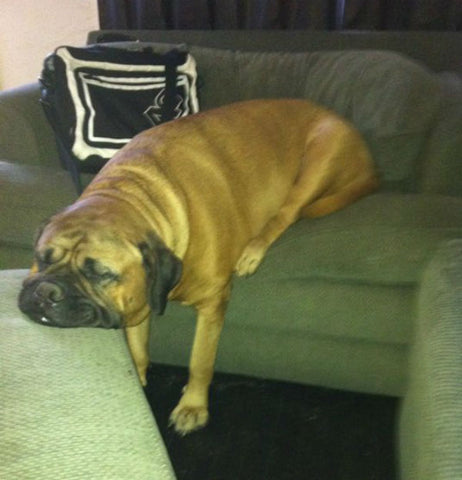
Obviously, every dog and breed is a little different, so his or her feeding schedules and nutritional needs will vary. With big dogs, due to their specific nutritional needs and rapid growth rates, owners need to be cognizant of how much, how frequently and what kind of food they dole out. This information can usually be found via dog breed clubs, rescues or breeders. It’s not rocket science, so it shouldn’t be too hard to follow the guidelines once you find them, but make sure you stick with them as best you can. In the long run, it will help tremendously, especially during your dog’s early years.
Exercise for large breeds is also key to good health. Low impact is the key word here. Like I said before, big dogs carry a lot of weight and this puts stress on their bodies. Hard impact exercise like running will wear down your dog quicker, so try to minimize the running. If you do insist on running your dog a lot, try running them on softer surfaces like grass or sand. If you can teach them to swim, that’s ideal, but not always that easy for a bigger dog. They tend to sink!
Finally, a good bed is key to large breed health. Most people don’t realize that big dogs sleep nearly 18 hours per day on average. This means that they are laying down the majority of the day. Because they lay down for such long periods of time, any run of the mill dog bed will not work. It’s very important to find a big dog bed that will provide support for the hips, joints and bones.
The larger the dog, the more they are prone to hip dysplasia, and a host of other joint and skeletal issues. This is especially true during their first years of development because of their rapid growth rate. If they don’t have a bed to support them properly, they will toss and turn and not sleep or rest as well. Sleeping is key to a young dog’s development, because the sleep phase is where a dog’s body repairs itself. Rapid growth for large breeds can be very painful. These growing pains can be somewhat alleviated with a good bed that evenly supports and comforts your dog.
Also, as your dog grows older, they are more prone to arthritis. By providing a good, supportive bed, your dog will not wake up quite as stiff or in pain as they would have if they were sleeping on a hard floor or a thin bed. A good bed will give them more energy and a better quality of life.
As a big dog owner myself, there’s nothing like the love you get from one of these giants. Be sure to reciprocate that love by following some of these simple suggestions to give your dog the healthiest and fullest life you can.
